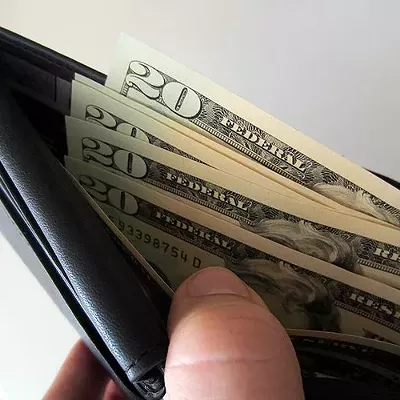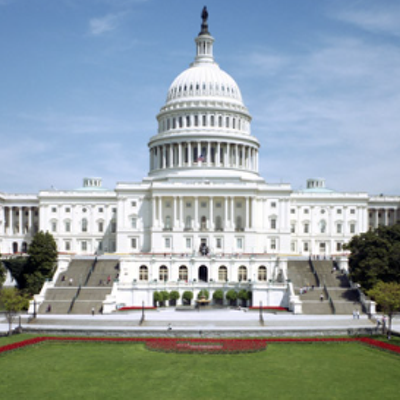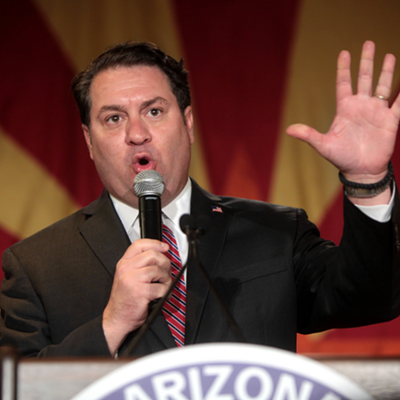TRIGGER HAPPY
The Pima County Republican Party got itself some national attention with its recent decision to raise funds by raffling off a Glock 23, which is remarkably similar to the Glock 19 used by a crazed gunman in the Jan. 8 shooting rampage that killed six people, including federal Judge John Roll and 9-year-old Christina-Taylor Green. Thirteen others were wounded, including Congresswoman Gabrielle Giffords, who is still recovering from being shot in the head.
Local Republicans are split on the raffle, with some calling it stupid, and others praising the party for standing up for the Second Amendment. The controversy was good for the party's fundraising, however; demand for tickets was so high that the party threw in a second gun, a deer rifle.
The GOP candidates running for mayor and City Council were split on what they think of the raffle.
Rick Grinnell, the Rosemont Mine lobbyist who got on the general-election ballot last week as the GOP mayoral nominee thanks to a successful write-in campaign, distanced himself from the raffle, saying he "wasn't involved in that at all."
Grinnell points out that the party has auctioned off guns in the past, but he added that he's "sure the timing could have been a lot better. My concern with guns is not about responsible gun owners; it's about irresponsible gun owners."
Grinnell said that he would not have had a raffle for a Glock pistol.
"It's all about perception," Grinnell says. "Would I have done it personally? No. ... I believe in the Second Amendment. I've raised a lot of money for charities, and I would have looked for different alternatives."
Republican Jennifer Rawson, who is running against Ward 2 City Councilman Paul Cunningham, says the raffle "wasn't intended to be as controversial as it has turned out to be. ... I think it is being blown out of proportion."
Rawson has no problem with raffling off a Glock firearm.
"If you had been in an accident in your car, you'd still drive your car, and it would be OK for us to auction a car," Rawson says. "People are killed in cars all the time."
Rawson describes herself as a strong supporter of the Second Amendment.
"It isn't the weapon that causes the problem," Rawson says. "It's the person behind it."
Republican Tyler Vogt, who hopes to unseat Democratic City Councilwoman Shirley Scott in Ward 4, says he doesn't have an opinion on the raffle one way or the other.
"I didn't even know it was going on until the news broke," Vogt says. "I have not been involved in that at all."
MAIL BONDING
With only one election behind us—a primary election that featured few contested races to drive voters to the polls—it's a little premature to draw many conclusions about how the city's new vote-by-mail system is going to affect turnout.
But if last week's primary is any indication, the new system—which involves sending a ballot to registered voters (or, in the case of independents during a primary, a postcard asking them to request a specific party's ballot) and inviting them to either send it back or drop it off at one of the polling stations set up in each ward—is likely to boost turnout.
Let's crunch the numbers: Turnout in city elections, which occur in odd-numbered years and lack the excitement of presidential and gubernatorial campaigns, is generally lousy, particularly in primaries.
If we go back to 1999, turnout in city primaries has ranged from 39,365 voters in 1999 (when you had a fiercely contested mayoral primary among Democratic voters) to a low of 8,529 voters in 2005. (That's not counting 2001, when only 5,678 people cast ballots. That election was held on Sept. 11, and should be considered an outlier, because the nation was reeling from the terrorist attacks on New York and Washington, D.C., that day.)
But this year, 44,356 voters cast ballots—a big increase over even the best year.
If your concern is getting more people to participate in the process, it appears that the vote-by-mail system will do just that.
Here's a big possible consequence of that: There are 113,700 registered Democrats in the city of Tucson, compared to about 63,200 Republicans. Since voters citywide vote for all of the council members as well as the mayor, Democrats have a huge advantage in city elections.
Nonetheless, Republicans have managed to win a number of races in recent years. Retiring Mayor Bob Walkup has been on the 10th floor of City Hall for 12 years, and in 2009, Republican Steve Kozachik won the midtown Ward 6 seat by upsetting Democratic incumbent Nina Trasoff by fewer than 1,800 votes.
The key to GOP victory: Getting eastside voters to the polls, while southside and westside Democrats stayed home. In 2009, turnout in eastside Ward 4 was 35 percent, while in Ward 2, it nearly hit 43 percent.
Meanwhile, in westside Ward 1, turnout was less than 26 percent, and in southside Ward 5, it was a dismal 21 percent.
If vote-by-mail ticks up turnout in those westside and southside wards, it's likely to help Democrats in the November election.
In the primary, there are signs that it did boost turnout; in Ward 1, nearly 28 percent of Democrats voted in the competitive primary between incumbent Councilwoman Regina Romero and her challenger, Joe Flores. In Ward 5, which is home to Tucson's least-engaged voters, turnout among Democrats was at 17 percent, even though they had no reason to actually cast a ballot.
Given that trend, is it any wonder that Democrats are excited about vote-by-mail, while Republicans have been complaining about it?
FLAT-OUT NUTS
During this year's legislature session, we wrote about a flat income-tax proposal that passed the Arizona House of Representatives but stalled before it could pass the Senate ("Flat Unfair," April 14).
The bill would have raised income taxes for the vast majority of Arizona taxpayers while reducing them for the highest earners by creating a single flat income-tax rate for Arizona taxpayers. There's a simple reason for that: If you're going to collect the same amount of money, and the highest earners currently pay the lion's share, it's no surprise that lowering the rate for the top means higher taxes for the bottom.
Among the things you'd have to kiss goodbye: That fat mortgage deduction that makes home ownership such a good deal.
While this sounds like a bad deal for most of us, Southern Arizona GOP Republican lawmakers liked the flat-tax proposal.
HB 2636 was co-sponsored by Sen. Frank Antenori and Reps. David Gowan and Ted Vogt (who represent Tucson's eastside, Green Valley and Sierra Vista), as well as Reps. Vic Williams and Terri Proud (who represent the Catalina foothills and Oro Valley). Gowan, Vogt, Williams and Proud all voted in favor of it when it passed the House of Representatives in March.
The bill ended up stalling in the Senate, but its House sponsor, Mesa Republican Steve Court, has promised to bring it back next year.
State Sen. Paula Aboud, a Democrat who represents central Tucson, wants to warn taxpayers about the plan to saddle them with higher taxes.
"The shock is that eight of nine people are going to have their taxes raised, and the people don't know anything about it," says Aboud.
Aboud is sponsoring a forum on the flat tax with financial experts at 6:30 p.m., Monday, Sept. 12, at Temple Emanu-El, 225 N. Country Club Road. She'll be doing another in Bisbee, at 5:30 p.m., Tuesday, Sept. 13, in the Cochise County Supervisors Board Room.








